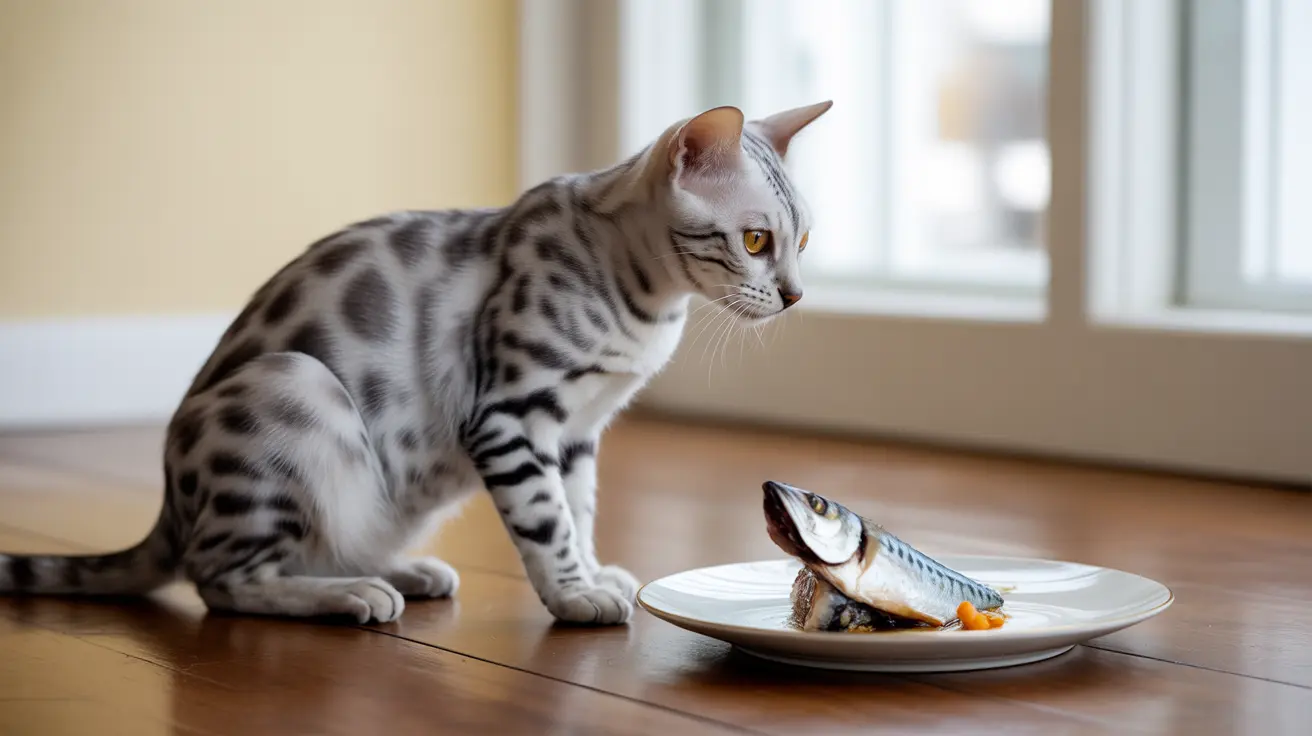Understanding Mackerel for Cats
Many cat owners wonder about incorporating fish into their pet's diet, and mackerel often comes up as a potential option. This nutrient-rich fish can indeed be a healthy addition to your cat's diet when served properly and in moderation. Understanding the benefits, risks, and proper serving methods is crucial for your cat's health and safety.
Nutritional Benefits of Mackerel
Mackerel offers several important nutrients that can benefit your cat's health:
Omega-3 Fatty Acids
Mackerel is rich in EPA and DHA, omega-3 fatty acids that support:
- Joint health and mobility
- Brain function and development
- Skin and coat health
- Anti-inflammatory properties
Essential Proteins and Vitamins
This fish provides:
- High-quality protein for muscle maintenance
- Vitamin B12 for immune system support
- Vitamin D for bone health
- Essential minerals including selenium and zinc
Safe Preparation and Serving Guidelines
Cooking Methods
Always serve mackerel cooked or from cat-safe canned varieties. Never feed raw mackerel to your cat, as it may contain harmful parasites and bacteria. When preparing mackerel:
- Remove all bones
- Avoid seasoning or oils
- Steam or bake without additives
- Choose spring water-packed canned options
Portion Control
Moderation is key when feeding mackerel to cats:
- Limit to once per week
- Serve as a treat, not a meal replacement
- Start with small portions to test tolerance
- Monitor for any adverse reactions
Potential Risks and Considerations
Mercury Concerns
Different types of mackerel contain varying levels of mercury. Atlantic mackerel is generally safer than king mackerel, which should be avoided due to high mercury content. Signs of mercury poisoning include:
- Loss of coordination
- Vomiting
- Tremors
- Vision problems
Other Health Considerations
Be aware of these potential issues:
- Vitamin A toxicity from overconsumption
- Digestive upset from too much fish oil
- Possible allergic reactions
- Nutritional imbalances if fed exclusively
Choosing the Right Mackerel Products
When selecting mackerel for your cat:
- Choose products specifically made for cats
- Avoid human-grade canned mackerel in oil or brine
- Look for single-ingredient options
- Verify the source and quality
Frequently Asked Questions
Is mackerel safe for cats to eat, and how should it be prepared?
Yes, mackerel is safe for cats when properly prepared. Always serve it cooked or from cat-safe canned varieties, remove all bones, and avoid seasonings or additives. Never serve raw mackerel.
What are the health benefits of feeding mackerel to cats?
Mackerel provides omega-3 fatty acids, high-quality protein, vitamin B12, vitamin D, and essential minerals that support joint health, brain function, immune system, and overall well-being.
How often can I give my cat mackerel without risking mercury poisoning?
Limit mackerel to once per week as a treat, not a meal replacement. Choose Atlantic mackerel over king mackerel, as it contains lower mercury levels.
Which types of mackerel are safest for cats, and which should be avoided?
Atlantic mackerel is the safest option, while king mackerel should be avoided due to high mercury content. Always choose plain, cooked mackerel or varieties canned in spring water.
Can feeding too much mackerel cause health problems for my cat?
Yes, excessive mackerel consumption can lead to mercury poisoning, vitamin A toxicity, digestive issues, and nutritional imbalances. Always feed in moderation and as part of a balanced diet.
Conclusion
Mackerel can be a healthy addition to your cat's diet when served properly and in moderation. Focus on safe preparation methods, appropriate portions, and quality sources. Always monitor your cat for any adverse reactions and consult with your veterinarian before making significant dietary changes.






